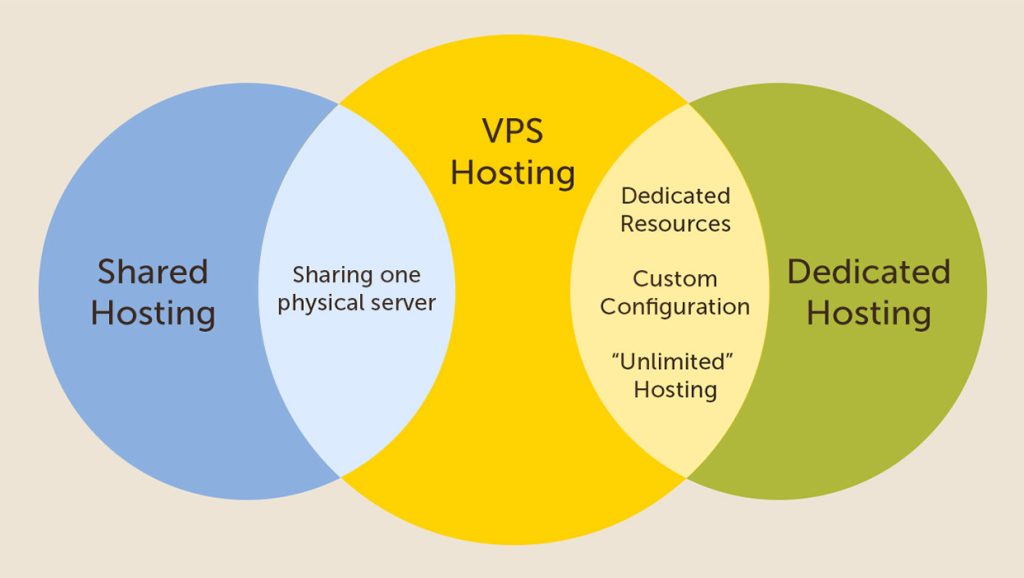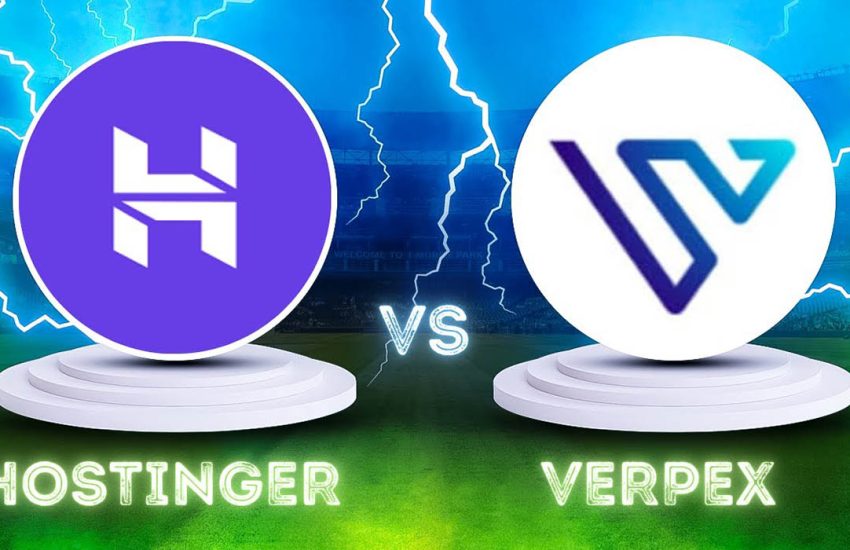Let Technology Work for Me: The Present and Future of Hosting Services
When I first heard the term “hosting service,” it felt like something distant and technical. At that time, my focus was entirely on tangible electronic products — the latest smartphones, laptops with longer battery life, smoother-running routers, and smart home devices that fascinated me. These visible, touchable pieces of technology gave me a concrete sense of what “progress” meant. But after stepping into the world of digital content creation, I realized that behind every seamless digital experience lies not just the end device, but also an entire invisible infrastructure — hosting and server technology.
Gazelle.com – Buy Smart. Sell Easy.
Trade in your old phone, tablet, or laptop at Gazelle.com and get instant cash offers.
Or shop certified pre-owned devices that look and work like new — all fully tested and guaranteed.
Simple. Secure. Sustainable.
From the moment I began building my own website, uploading review videos, and managing product databases, “hosting” became an indispensable part of my digital life. It may sound abstract, but it’s deeply embedded in every page load, every data transfer, and every online interaction. Over time, my understanding of hosting evolved from “putting a website on someone else’s server” to “a service ecosystem that lets technology work for me.”
1. The Application Scenarios of Hosting: Making the Digital World Lighter
When I first used hosting services, my goal was simple: I needed a stable, secure, and reasonably priced place to store my website’s content. But as I explored deeper, I discovered that hosting goes far beyond just website building. It permeates almost every part of our digital lives — from personal blogs to international e-commerce, from cloud storage to AI model training — hosting silently powers the entire internet ecosystem.
1. Websites and E-Commerce Platforms
For me, this is the most familiar and direct scenario. My website hosts a large number of images, charts, and product review content. If the server is unstable, readers will immediately feel it through slower loading times or downtime. I started with shared hosting — inexpensive but often unreliable — and later upgraded to VPS (Virtual Private Server), which brought a noticeable boost in performance. That’s when I realized the quality of hosting determines the vitality of a website.
For e-commerce platforms, this influence is even greater. A few seconds of delay in page loading or a server crash during high traffic can mean losing sales opportunities. Hosting directly affects the conversion moment between a click and a purchase.
2. Cloud Storage and Media Distribution
Every day, I handle massive amounts of high-resolution images and video materials. Keeping them all on local drives isn’t practical — it wastes space and risks data loss. Using cloud hosting services changed everything: I could upload files quickly and distribute them globally through CDNs, improving access speed dramatically. I began to see hosting not just as storage, but as an intelligent distribution system.
When producing video reviews, cloud hosting allows me to access my materials from anywhere in the world — no more worrying about damaged drives or incompatible devices.
3. Enterprise Data and Remote Work
As digital transformation accelerates, hosting has become the foundation of modern business operations. Companies are abandoning local servers and turning to cloud platforms for centralized data management, application deployment, and remote collaboration. The pandemic made this shift even more essential.
I once helped a friend optimize his company’s cloud collaboration setup — within weeks, team efficiency increased by 30%. That experience convinced me that hosting isn’t just “renting a server.” It’s outsourcing productivity.
4. Smart Homes and the Internet of Things (IoT)
In recent years, I’ve reviewed numerous smart devices — security cameras, smart bulbs, air monitors, speakers, and more. They may appear to work independently, but all rely on hosting to connect to the cloud.
For example, when I check my home camera remotely, it’s cloud hosting that transmits the data. In the IoT era, every smart device becomes a node in a vast hosting network, and hosting providers will serve as the invisible backbone of this interconnected revolution.
2. The Types and Evolution of Hosting: From Shared to Cloud-Based

I’ve always believed that understanding hosting is equivalent to understanding the evolution of the internet itself. Early web hosting was like renting a desk in a crowded office — limited resources, noisy neighbors, and unstable performance. Then came VPS hosting, offering your own office space within a shared building — more control, better isolation. Eventually, cloud hosting arrived and completely redefined the landscape.
1. Shared Hosting
My first website was built on a shared hosting plan. It was cheap and easy to start with, but the drawbacks were obvious: if another site on the same server experienced heavy traffic, mine would slow down. Shared hosting is an entry-level option, suitable for personal blogs or small projects.
2. VPS (Virtual Private Server) Hosting
As my site grew, I migrated to a VPS. The sense of independence was liberating — I could configure my operating system, manage memory, and set security policies freely. Though slightly more expensive, the performance boost was worth it. VPS was my first step toward professionalism.
3. Dedicated Server Hosting
This is the premium level of hosting. The entire server’s resources belong exclusively to one user. Large enterprises or high-traffic platforms prefer this for maximum performance and reliability. Though costly, it’s the best value for projects that demand consistency and speed.
4. Cloud Hosting
The rise of cloud hosting marked a turning point in internet infrastructure. It broke the limits of hardware, allowing computing power to be allocated like running water — scalable, flexible, and on demand. The first time I used cloud hosting, I was amazed by its elasticity. Regardless of traffic surges, the system could instantly adapt. Even better, it offered automated backups, load balancing, and security monitoring — everything running quietly in the background.
Over the last decade, every upgrade in hosting technology has mirrored a leap in the internet itself. From standalone machines to virtualization, then to cloud-native environments — hosting is no longer just a tool for websites. It’s the operational backbone of the entire digital ecosystem.
3. The Future of Hosting: Intelligent, Green, and Decentralized
Looking back, hosting technology has advanced at lightning speed. Looking ahead, I see three defining trends: intelligence, sustainability, and decentralization.
1. AI-Powered Smart Management
Future hosting platforms will become increasingly “intelligent.” AI won’t just analyze performance — it will predict issues, auto-optimize resource allocation, and even fix problems before they occur.
Some providers already use AI to detect abnormal traffic and automatically reroute data to prevent downtime. This self-healing ability is revolutionary. For creators like me, it means zero-anxiety hosting.
2. Green Data Centers and Sustainable Energy
The internet consumes enormous energy — data centers account for roughly 2% of global electricity usage. The hosting industry must embrace green transformation.
More and more hosting providers now use renewable energy or build data centers in cold regions to cut cooling costs. I once visited a data center in Iceland that ran entirely on geothermal energy — a perfect blend of technology and sustainability.

3. The Rise of Edge Computing
With 5G and IoT expanding rapidly, edge computing is redefining hosting.
Instead of sending all data back to the cloud, processing happens closer to users at “edge nodes,” reducing latency and improving responsiveness. Applications like autonomous driving, AR/VR, and real-time monitoring rely heavily on this. Edge hosting represents the next frontier of performance.
4. Data Privacy and Security Upgrades
Cyberattacks and data breaches are now daily news, making security a core focus for hosting providers. Future platforms will emphasize end-to-end encryption, multi-factor authentication, and real-time threat detection.
Personally, I prioritize hosts that comply with global standards like GDPR and ISO 27001 — because in today’s digital economy, privacy is power.
4. How Hosting Changed the Way I Work
In the past, I spent hours troubleshooting server issues — database errors, expired SSL certificates, bandwidth shortages. It was exhausting. After moving to a smart hosting platform, I finally experienced what it means to “let technology work for me.”
Now I can focus entirely on content creation. My data is backed up automatically every day, AI monitors the site for threats, and when a post goes viral, the system scales resources instantly to handle the traffic.
It’s not just efficiency that’s improved — my mindset has changed too. Technology no longer feels like a burden; it feels like a dependable ally.
5. Hosting: Making the Future Simpler
Looking back, I went from manually configuring servers to fully trusting managed hosting solutions. This shift has given me more time to focus on creativity rather than troubleshooting.
I believe hosting will become increasingly human-centric and intelligent. One day, we may stop mentioning the term altogether, because it will be seamlessly woven into everything — websites, cloud storage, AI assistants, and smart devices. Invisible yet indispensable.For me, hosting represents more than technological progress; it represents freedom. It frees people from complex system management and lets creativity flourish.


